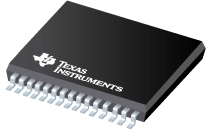Datasheet Texas Instruments BQ29330
| Manufacturer | Texas Instruments |
| Series | BQ29330 |

Two, Three and Four Cell Lithium or Lithium-Polymer Battery Protection AFE
Datasheets
2, 3-, 4-Cell Lithium-Ion or Lithium-Polymer Battery Protection AFE datasheet
PDF, 1.0 Mb, Revision: E, File published: Mar 19, 2012
Extract from the document
Prices
Status
| BQ29330DBT | BQ29330DBTG4 | BQ29330DBTR | BQ29330DBTRG4 | |
|---|---|---|---|---|
| Lifecycle Status | NRND (Not recommended for new designs) | NRND (Not recommended for new designs) | NRND (Not recommended for new designs) | NRND (Not recommended for new designs) |
| Manufacture's Sample Availability | No | No | No | No |
Packaging
| BQ29330DBT | BQ29330DBTG4 | BQ29330DBTR | BQ29330DBTRG4 | |
|---|---|---|---|---|
| N | 1 | 2 | 3 | 4 |
| Pin | 30 | 30 | 30 | 30 |
| Package Type | DBT | DBT | DBT | DBT |
| Industry STD Term | TSSOP | TSSOP | TSSOP | TSSOP |
| JEDEC Code | R-PDSO-G | R-PDSO-G | R-PDSO-G | R-PDSO-G |
| Package QTY | 60 | 60 | 2000 | 2000 |
| Carrier | TUBE | TUBE | LARGE T&R | LARGE T&R |
| Device Marking | 29330 | 29330 | 29330 | 29330 |
| Width (mm) | 4.4 | 4.4 | 4.4 | 4.4 |
| Length (mm) | 7.8 | 7.8 | 7.8 | 7.8 |
| Thickness (mm) | 1 | 1 | 1 | 1 |
| Pitch (mm) | .5 | .5 | .5 | .5 |
| Max Height (mm) | 1.2 | 1.2 | 1.2 | 1.2 |
| Mechanical Data | Download | Download | Download | Download |
Eco Plan
| BQ29330DBT | BQ29330DBTG4 | BQ29330DBTR | BQ29330DBTRG4 | |
|---|---|---|---|---|
| RoHS | Compliant | Compliant | Compliant | Compliant |
Application Notes
- bq29330 External Short Circuit ProtectionPDF, 155 Kb, File published: Aug 22, 2007
In Li-ion battery pack design, short-circuit protection should be given sufficient emphasis to ensure that even if an external pack short does occur, it is benign. Properly designed battery fuel gauge solutions using the bq29330 analog front-end (AFE) protector and bq20z70, bq20z75, bq20z90, and bq20z95 fuel gauge ICs not only safeguards the battery, but also ensures a full recovery of functionali - Fast Cell Balancing Using External MOSFET (Rev. A)PDF, 153 Kb, Revision: A, File published: Jan 26, 2009
The need for cell balancing comes from the fact that cell-to-cell differences in self-discharge, capacity, and impedance can lead to different charge states among the cells. However, the charger terminates the charge based on the summed voltage only, which may leave some cells undercharged and others overcharged. To remedy this imbalance and to achieve the goal of having all cells reaching 100% st
Model Line
Series: BQ29330 (4)
Manufacturer's Classification
- Semiconductors> Power Management> Battery Management Products> Battery Monitor, Protection & Authentication Solutions
